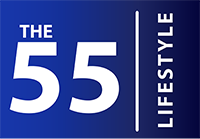If you’ve completed the Beginner and Intermediate courses, then you’ve been working out solid for at least six weeks, so congratulations! Now, in this continuing series of the workout-at-home blogs, we move into the advanced total body home workout steps you can incorporate into your routines.
Stretching
Yes, we realize we’ve continued to harp on stretching for all the home workout series and we won’t apologize for it! Stretching, especially for anybody over 50, is crucial for your overall physiological health and well-being. One of the studies we read through from the International Journal of Sports Physical Therapy offer some specific benefits of stretching for older individuals. In short, make time to stretch, include it in your warm-up routines, and stretch whole body before and after your work outs. (Read our blog on the benefits of stretching)
Warm-Ups
Jump rope (or just the motion) for 45 seconds, then rest for 60 while walking or performing alternating knee lifts in place; repeat up to five times. The knee lifts should reach your waist or as high as you’re comfortable with. (I drive my knee into my hands for impact and added effort, up to you though.)
As with the intermediate course, if jump rope isn’t a possibility, then jumping jacks (at least 4 sets of 25 at this advanced level) will suffice. Combine with knee lifts or side lunges if you want to open your hips and get your core moving. The idea is to increase circulation and warm-up your muscles before starting your routine. The more intense you anticipate your workout will be, the more you should warm-up.
Rotation 1
Remember that we’re going for a whole-body routine instead of split training, so you can separate the session into two rotations to ensure you don’t overtax one muscle group and to keep things mixed.
Kettlebell Goblet Squat

Legs are a challenge for home workout training, they require extra attention but respond well to the effort. We’ve kept the Kettlebell Squat since it is great for hitting all three components of your leg: quads, hamstring and glutes. (Increase the weight at your comfort level)
- Week 1: Three sets of 10 squats with 15 – 25-pound kettle ball
- Week 2: Three sets of 12 squats with 15 – 25-pound kettle ball
- Week 3: Three sets of 15 squats with 15 – 25-pound kettle ball
- Continued: 4 sets of 15 with 15 – 25-pound kettle ball, 30 to 45 seconds pause between sets at your pace.

 If you don’t have the kettlebell, you can use resistance bands with increasing tension up to 100 pounds or based on your discretion. The bands can be used quite effectively with straight bars.
If you don’t have the kettlebell, you can use resistance bands with increasing tension up to 100 pounds or based on your discretion. The bands can be used quite effectively with straight bars.
Bench press with Dumbbells OR Resistance Band Pushup
Switching to upper body, we stick with the fundamentals and increase the reps, not the weight or tension as bulk/increasing size is not the primary focus for this regimen.
Dumbbells use no more than 25% of your body weight, max of 50 pounds
Resistance bands between 25% – 40% of your body weight.
- Week 1: Three sets of 10
- Week 2: Three sets of 12
- Week 3: Three sets of 15
- Continued: Three sets of 15
Push-ups are such a versatile exercise. If you find yourself needing more of a strenuous chest press, you can incline your upper body or decline your feet on a chair or a bench. These variations will target differing parts of your chest, shoulders and triceps.
Ab Wheel Roll

For this advanced program, just continue the ab wheel as part of a regular core/ab exercise from the intermediate courses:
- Continued: Roll forward and back 15 – 20 times, repeat twice for a total of 3 sets. Increase per your comfort level since core work benefits most all other exercises.
Rotation 2
Step-Up Box or Box Step

Another well-rounded exercise that focuses on the major muscles of the legs, the box step is just as it sounds. You have a stand or box (pictured) and step up and back down, alternating your legs. For an added exertion, thrust your knee upward at the end of the step.
- Week 1: 10 times each leg (counts as One set of 10 reps)
- Week 2: Two sets of 10 reps
- Week 3: Three sets of 10 reps
Shoulder press with Dumbbells or Resistance Band
Once again, move to the upper body and since your chest/back are recovering, use the shoulder press to “square” your trapezius (traps) and deltoids (delts). We finished the intermediate course with 25 pounds in a dumbbell or the resistance band equivalent. Add weight only when you feel it’s worth the added effort.
- Week 1: Three sets of 10 (dumbbells use no more than 25 pounds)
- Week 2: Three sets of 12 (dumbbells use no more than 25 pounds)
- Week 3: Three sets of 15 (dumbbells use no more than 25 pounds)
- Continued: Keep with the three sets of 15 at 25 pounds.
Ab Crunch on Exercise Ball

Finish off the entire session with your last core/ab exercise. If you don’t have an exercise ball, you can do a combination of regular floor crunches mixed with leg lifts. This should get your entire midsection involved.
- Week 1: One set of 25 slowly executed crunches, focusing on lower abs
- Week 2: Two sets of 25 performed the same way as above
- Week 3: Three sets of 25 performed with the same care as above
- Continued: Ab work will remain past the week three advanced mark, so incorporate them into each rotation. Increase to 100 crunches as 4 sets of 25 when you feel it is appropriate.
As an alternative, substitute planks if any ab crunch movements give you discomfort. There are varying version of planks, so switch it up if your abs get monotonous.
Cool Down
Remember that your cool down is still a part of your training, so don’t leave it out. Stretch as part of your cool down – your muscles will thank you for it!
- Perform about 2-3 minutes of light cardio with in-place knee lifts, light jump rope or jumping jacks.
- Whole-body stretch for at least 12 to 20 minutes.
Continuing Workouts
At the eight to nine-week mark, some fitness experts say that we should take a week or so off and do other types of workouts like cardio routines. Biking, swimming (if you have access to a pool) or rowing machines make excellent diversions, the important thing is not to stop. Listen to your body and rest when you need it, of course, but keep a consistent schedule so your workouts become habit. Remember that good habits (just like bad ones) are hard to break and exercise should be habitual for men 50 and over!
Conclusion
Whatever your reason for working out from home, be it convenience, cost or out of a necessity for something new, fitness is just as easily achieved at home as it is at a gym. We’ve covered three routines you can do that are relatively easy, hits your major body groups, and not time consuming. We’ll continue to refine and add more exercises, as your home workout can be as diverse and effective as one would expect in the 21st century.
As always, if you don’t see something you want us to research and post for you, simply reach out through our Contact page or leave a comment below, we read each and every one. Stay fit, stay healthy and stay happy!! All the best ~ Glen.
The 55 Lifestyle is a participant in the Amazon Services LLC Associates Program, an affiliate advertising program designed to provide a means for sites to earn advertising fees by advertising and linking to Amazon.com.








